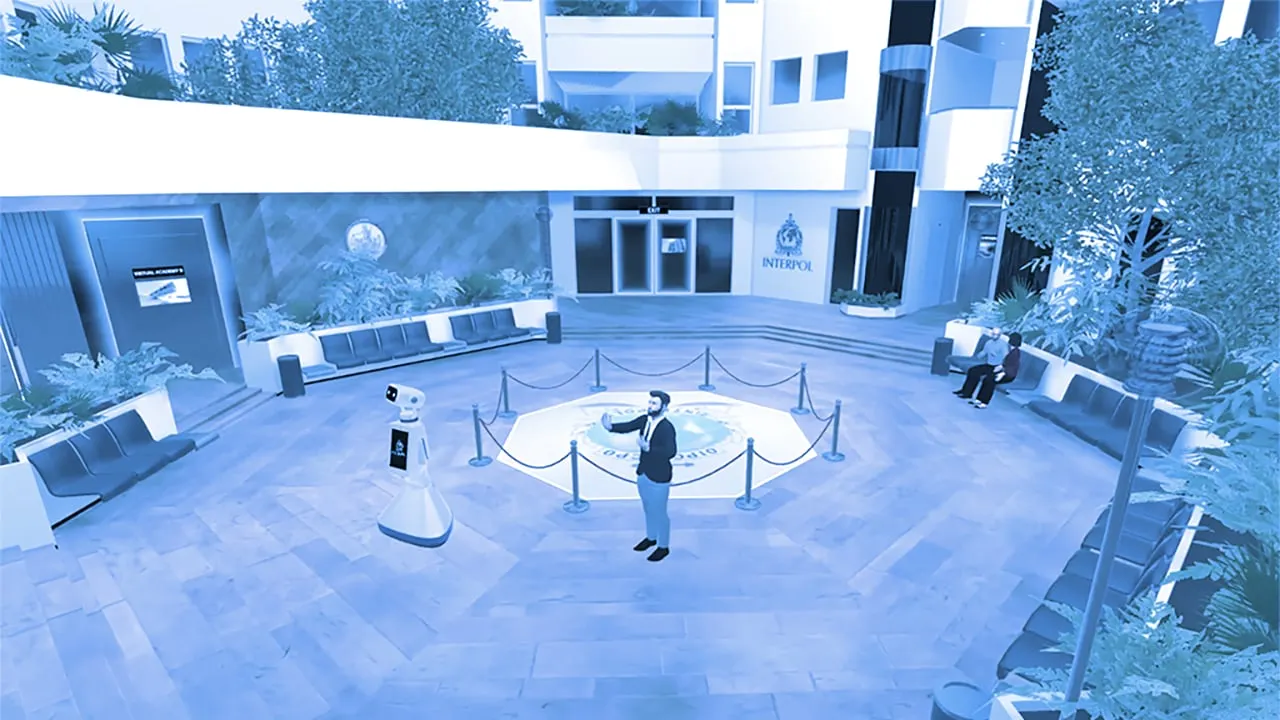The International Criminal Police Organization (Interpol) has announced the launch of its fully operational metaverse, initially designed for activities such as immersive training courses for forensic investigations.
Unveiled at the 90th Interpol General Assembly in New Delhi, the INTERPOL Metaverse is described as the “first-ever Metaverse specifically designed for law enforcement worldwide.”
Among other things, the platform will also help law enforcement across the globe to interact with each other via avatars, according to the announcement.
Metaverse is a common name for a future vision of an immersive Internet where virtual reality (VR) and augmented reality (AR) headsets are touted to play a big role in online experiences—and potentially even replace some real-world activities.
As virtual worlds evolve, concerns are being raised about potential metaverse crimes, including crimes against children, data theft, counterfeiting, ransomware, sexual assault, and harassment.
“For many, the Metaverse seems to herald an abstract future, but the issues it raises are those that have always motivated INTERPOL – supporting our member countries to fight crime and making the world, virtual or not, safer for those who inhabit it,” Jürgen Stock, Interpol’s secretary general said in a statement.
Interpol and fighting crime in the metaverse
One of the challenges identified by organizations is that something that is considered a crime in the physical world may not necessarily be the same in the virtual world.
“By identifying these risks from the outset, we can work with stakeholders to shape the necessary governance frameworks and cut off future criminal markets before they are fully formed,” said Madan Oberoi, Interpol’s executive director of Technology and Innovation. “Only by having these conversations now can we build an effective response.”
In a live demonstration at the event, Interpol experts took to a Metaverse classroom to deliver a training course on travel document verification and passenger screening using the capabilities of the newly-launched platform.
Students were then teleported to an airport where they were able to apply their newly-acquired skills at a virtual border point.
Additionally, Interpol has created an expert group that will be tasked with ensuring new virtual worlds are “secure by design.”
The organization said it has also joined “Defining and Building the Metaverse,” a World Economic Forum initiative around metaverse governance, which also features the likes of Meta, Microsoft, and Mastercard, as well as some prominent Web3 brands, including Animoca Brands and Decentraland.

